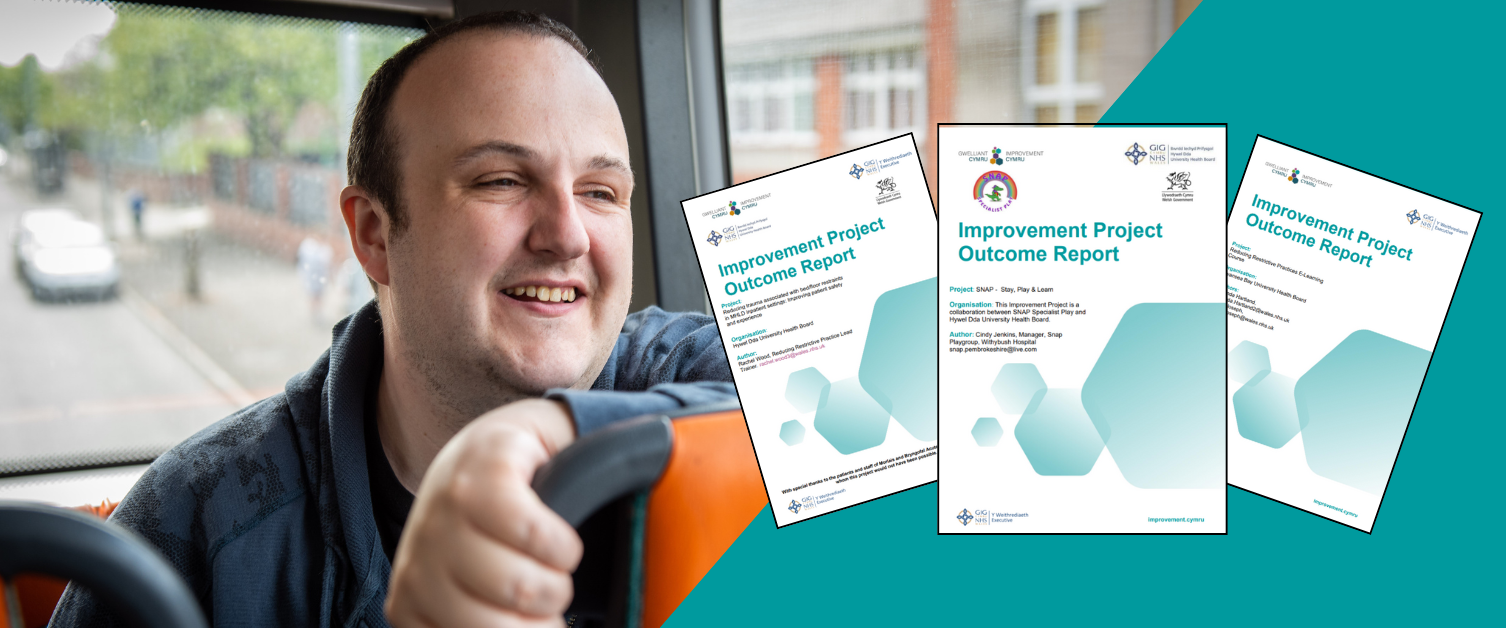Improvement grants | Innovative ideas into reality

Six teams that received grant funding and coaching on improvement methods have brought their ideas to reality to help to improve the lives of people with a learning disability in Wales.
In a true celebration of creative and innovative thinking, the six projects have shared their successes and setbacks to inspire other teams to consider changes that can enhance experiences and outcomes for those accessing services.
Background
As the public sector responded to the recovery of the COVID-19 pandemic, teams across health, social care, and education were invited to submit applications to develop emerging projects that would change the provision of services.
The opportunity would enable them to scale up good practice, work in collaboration with partners, and learn more about their ideas.
The improvement grants were available to public sector organisations, services, teams and members of staff, and could be used in partnership with other organisations, such as a third sector partner or a care provider.
Over 90 projects from across the learning disability community submitted applications for grant funding. After a thorough assessment process, a collective £100,000 was then awarded to the successful six projects over two years, 2023/24 and 2024/25.
Going further than funding
The improvement grants were facilitated by Improvement Cymru’s Learning Disability programme as part of its work to drive forward delivery of the Welsh Government’s Learning Disability Strategic Action Plan 2022-2026.
The six teams that secured grant funding also received coaching, advice, training, and resources from Improvement Cymru’s experienced team, and they were also introduced to key networks.
This guidance helped to improve the knowledge and skills of the teams, so they could apply their expanded skillset to their projects and to their future work.
Outcome reports
Each of the participating teams completed Improvement Project Outcome Reports to help others across health, social care, and education to learn from their experience.
The reports explain the goals of their projects, the methodology they used, key findings, and recommendations going forwards.
Key themes
Through each of the grant-funded projects, there were common themes in their findings and recommendations. These aim to address the challenges that have been identified and build on the success projects have achieved.
-
Collaboration and integration - There is a clear need for services and stakeholders to work together to create more effective and holistic support systems. This would increase broader understanding of issues and enable successful interventions through shared resources and information.
-
Accessibility and inclusion - Addressing barriers to participation is key to making sure that improvements are equitable for everyone. This includes (but isn’t limited to) considerations for transportation limitations, language accessibility, and diverse learning needs.
-
Supporting service users - The people who use services, their families, and carers should always receive support. From scoping an improvement project in the early stages to making decisions about their care, their continuous involvement should be a priority.
-
Data-driven changes - It’s essential to collect and make use of qualitative and quantitative feedback. Ongoing evaluation and clear outcome measures help to improve services and implement the most effective interventions. Understanding the shortcomings of data also helps to identify where further research is needed.
-
Bring people together - Building networks of people such as service users, their families, or care professionals, can help to nurture a sense of community. This can lead to supportive relationships and reduce feelings of isolation.
Thoughts and reflections



